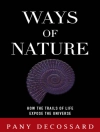In the latter half of the seventeenth century, Spinoza effected a reversal in the relationship between philosophy, politics, and religion, thereby laying the foundation for modern democracy. This shift, and his plea for philosophical critique, did not pass unchallenged. The idea that there is no equality without freedom, and no freedom without equality, was maligned by those who insisted it would lead to rebellion and anarchy. Still, Spinoza was no solitary figure, but formed part of a larger European movement. Inspired by several anonymous clandestine treatises, the republican writings of his contemporary De la Court, the democratic ideas of his former teacher Van den Enden, and the subversive criticism of his friend Koerbagh, Spinoza continued the trajectory established by Machiavelli. The resistance which his work encountered played a role in the radicalization of his ideas, the return to Machiavelli’s revolutionary principles, and the recognition of the multitude’s crucial role.
Sonja Lavaert
Democratic Thought from Machiavelli to Spinoza [PDF ebook]
Freedom, Equality, Multitude
Democratic Thought from Machiavelli to Spinoza [PDF ebook]
Freedom, Equality, Multitude
Cumpărați această carte electronică și primiți încă 1 GRATUIT!
Limba Engleză ● Format PDF ● ISBN 9781399530521 ● Traducător Albert Gootjes ● Editura Edinburgh University Press ● Publicat 2024 ● Descărcabil 3 ori ● Valută EUR ● ID 9513939 ● Protecție împotriva copiilor Adobe DRM
Necesită un cititor de ebook capabil de DRM












